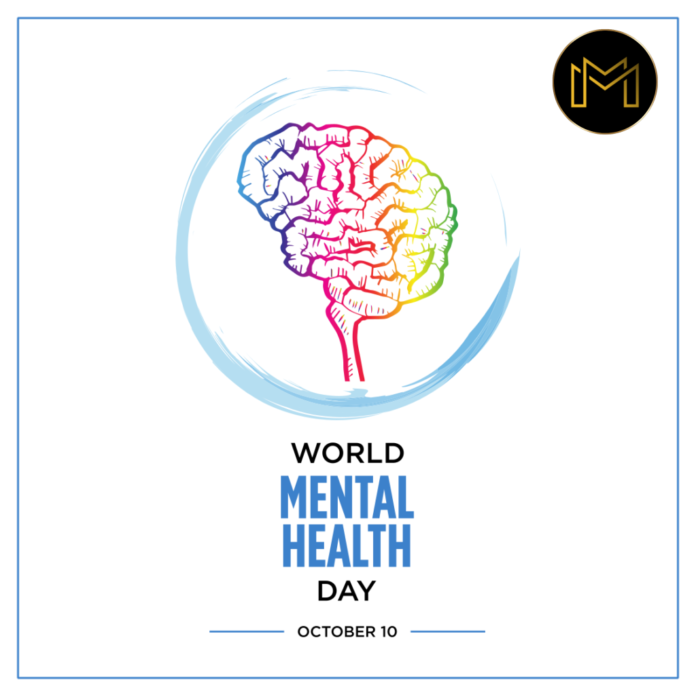Make mental health & well-being for all a global priority
The World Health Organization (WHO) recognizes World Mental Health Day on 10 October, every year. This year’s theme for World Mental Health Day, set by the World Federation for Mental Health, is ‘make mental health and wellbeing for all a global priority’.
The day is celebrated around the world to create awareness on the issue besides mobilizing support for those who are dealing with the mental issues..
Mental health has become a serious problem with the global pandemic- Covid 19- in its third year. Prolonged hostilities and wars, damaging climatic events, deteriorating economic conditions as well as violence, prejudice, injustice, and inequity are also the contributing factors.
Unfortunately, the need for psychological help is grossly misinterpreted, stigmatized, and frequently mistreated. In the first year of Covid-19 alone, the global prevalence of anxiety and depression climbed by 25%, with young people and women being the most affected as reported by UNFPA. (need to provide link if quoting someone)
Pakistan with its over 200 million population has the worst mental health indices. Mental illnesses accounts for more than 4% of the total disease load in Pakistan, with women bearing a huge share of the burden. According to the data provided by WHO in 2020,it is estimated that 24 million individuals in Pakistan require psychiatric care.
Available resources for screening and treatment of mental health issues, however, are insufficient to meet the needs of the growing demand in the country. According to WHO data, Pakistan has 0.19 psychiatrists per 100,000 people, one of the lowest rates in the WHO Eastern Mediterranean Region and around the world. This lack of mental health professionals in Pakistan creates a massive treatment gap, leaving more than 90% of people with common mental disorders untreated.
In addition to the lack of trained professionals, Pakistan also lacks a regulatory body for mental health professionals which makes it difficult to have a systematic way for people to approach practitioners. In a country where physical health is not a priority of the government, mental health becomes an even greater challenge for them to regulate.
Pakistan has been a victim of a series of traumatic events. From facing years of terrorism and violence, political instability, and inflation and now being hit with the worst floods. The country is in dire need of mental health assistance and making it a priority for all. Psychological help especially Psychological First Aid (PFA) is crucial for mitigating the adverse impacts of floods on survivors of this humanitarian disaster.
The mental health condition in Pakistan requires immediate attention from the government, policymakers, the healthcare treatment system, and academics. There is a pressing need to review the national health policy and integrate a mental health care system into primary care to improve the situation.
Under the 18th amendment to the constitution of Pakistan, health was made a provincial concern rather than a federal one. On 8 April 2010, the Federal Mental Health Authority was dissolved and responsibilities were devolved to the provinces. It became a provincial level task to pass appropriate mental health legislation through their respective assemblies. Not much progress has been witnessed regarding mental health legislation and implementation ever since. There is an urgent need to persuade the Federal government to adopt a strategic plan integrated within its national development and health policies since the collaboration of the public health sector, professional bodies in mental health and non-governmental organizations is vital to deal with the current mental health challenges.
Reference: https://www.unfpa.org/events/world-mental-health-day




